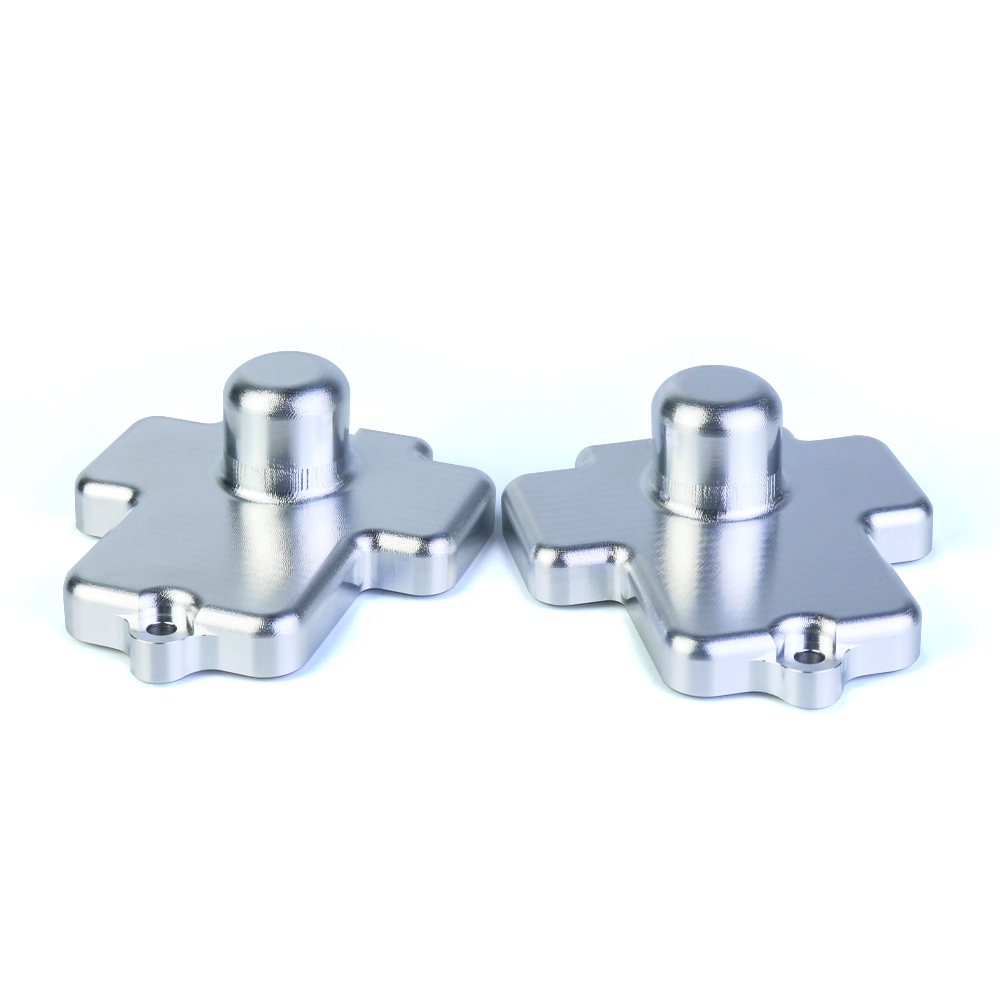آلة الأداة ومعالجة القوالب: المفتاح لفتح تصنيع الدقة

في منظومة التصنيع السريعة التطور اليوم، أصبحت الأدوات الآلية ومعالجة القوالب العمود الفقري للإنتاج الحديث. حيث تطلب الصناعات مثل السيارات، والطيران، والأجهزة الطبية والإلكترونيات الاستهلاكية أجزاءً أكثر تعقيدًا ودقة وكفاءة، لم يسبق أن كان هناك حاجة أكبر للتكنولوجيات المتقدمة في معالجة القوالب والأدوات الآلية. هذه المزيج الديناميكي بين التصنيع الدقيق والتكنولوجيا القالبية يعيد صياغة عالم التصنيع، مما يمكّن الشركات من تقديم منتجات عالية الجودة بشكل أسرع وأكثر كفاءة من أي وقت مضى.
قوة الأدوات الآلية في التصنيع الحديث
لطالما كانت آلات الأدوات العمود الفقري لإنتاج الصناعات، لكن التطورات الأخيرة في أنظمة CNC (التحكم العددي بواسطة الحاسوب)، والروبوتات، والتحكّم الآلي المدعوم بالذكاء الاصطناعي تأخذ قدرات آلات الأدوات إلى مستويات جديدة. من التفريز عالي السرعة إلى التشغيل متعدد المحاور، فإن تطور آلات الأدوات يفتح أبوابًا جديدة للمصنعين عبر مختلف الصناعات.
- ·الدقة والتعقيد : تستطيع آلات CNC إنتاج تصاميم معقدة للغاية بدقة على مستوى الميكرومتر، مما يسمح للمصنعين بصنع مكونات شديدة التعقيد كانت مستحيلة الإنتاج سابقًا
- ·إنتاج أسرع : مع التحكم الآلي والأجهزة الأذكى، يتم اختصار دورة الإنتاج، مما يؤدي إلى أوقات استجابة أسرع وإنتاجية أعلى
- ·التصنيع الاقتصادي : تقلل الآلات المتقدمة من هدر المواد وتكاليف العمالة، كما تحسن من متانة وعمر الأجزاء، مما يؤدي إلى تقليل التكاليف الإجمالية للإنتاج
معالجة القوالب: تشكيل مستقبل التخصيص
المعالجة باستخدام القوالب هي في قلب الصناعات التي تتطلب إنتاج كميات كبيرة من الأجزاء المتطابقة بدقة عالية، بما في ذلك قطاعات السيارات والإلكترونيات والطبية. وبفضل القدرة على إنتاج مكونات دقيقة من مواد مثل البلاستيك والمعادن والسيراميك، تعد تقنيات المعالجة باستخدام القوالب مثل تشكيل بالحقن، وصب القوالب، والضغط بالقالب أساسية لنجاح التصنيع.
- ·حقن القالب : مثالية لإنتاج كميات كبيرة من الأجزاء البلاستيكية المعقدة، تتيح هذه العملية الدقة والتكرار مع حد أدنى من الهدر. مثالية لإنتاج الأجزاء المستخدمة في كل شيء من دواخل السيارات إلى الإلكترونيات الاستهلاكية.
- ·الصب بالضغط : هذه العملية تمكن من إنتاج أجزاء معدنية بدقة مذهلة وأداء سطحي ممتاز. تُستخدم بشكل واسع في تصنيع الطيران والسيارات والإلكترونيات، حيث يوفر صب القوالب مكونات ذات قوة عالية بمعدلات أسرع وبتكلفة أقل.
- ·التشكيل بالضغط : تُستخدم عملية تشكيل الضغط بشكل أساسي في تصنيع قطع المطاط والمواد الحرارية الصلبة، وتُستخدم لإنشاء منتجات متينة لصناعات مثل السيارات، والطبية، والبناء.
دمج أدوات الآلات ومعالجة القوالب لتحقيق إنتاجية أفضل
لقد ثورة دمج أداة الآلة ومعالجة القالب عملية التصنيع من خلال زيادة المرونة وتقليل الحاجة إلى عدة آلات أو عمليات. من خلال دمج هاتين التقنيتين القويتين، يمكن للمصنعين تحقيق اتساق أكبر، وإنتاجية أعلى، وجودة أفضل للمنتج. الفوائد الرئيسية تشمل:
- ·دقة محسنة : تحتوي أدوات الآلات المجهزة ببرامج متقدمة على تقنية تحسين تجويف القالب لتحقيق أعلى مستويات الدقة والاتساق عبر دفعات الإنتاج.
- ·تقليل أوقات الدورة : تساعد أدوات الآلات على تسريع عمليات تصنيع القوالب مثل القطع، والتثقيب، والتشطيب، مما يمكّن من إنتاج أجزاء نهائية بشكل أسرع.
- ·التخصيص والمرونة : بفضل تصاميم القوالب المرنة وإعدادات أدوات الآلات القابلة للتعديل، يمكن للمصنعين التبديل بسهولة بين تصاميم مختلفة للأجزاء، مما يجعل إنتاج الدفعات الصغيرة أكثر كفاءة من حيث التكلفة.
- ·وفورات في التكاليف : من خلال استخدام تقنيات معالجة القوالب مثل تشكيل الحقن إلى جانب الأدوات الدقيقة، يمكن للشركات تقليل هدر المواد وتقليل تكاليف الأدوات، ونقل هذه الادخار إلى العملاء.
الصناعات المستفيدة من معالجة أداة الآلة والقالب
- ·السيارات : اعتمد قطاع السيارات لفترة طويلة على معالجة القوالب لإنشاء مكونات متينة وجودة عالية لكل شيء من ألواح الهيكل إلى المكونات الداخلية. وبفضل ما تقدمه أدوات الآلات الآن من دقة وسرعة أكبر، أصبح بإمكان مصنعي السيارات تحسين التصاميم، تقليل وزن الأجزاء، وخفض تكاليف الإنتاج.
- ·الفضاء : تتطلب شركات تصنيع الطيران والفضاء دقة متrema للحصول على أجزاء تتوافق مع المعايير الصارمة للأمان والأداء. يسمح الجمع بين معالجة القوالب وأدوات الآلات عالية الأداء بإنتاج كميات كبيرة من الأجزاء الخفيفة والقوية مثل شفرات التوربينات، غلافات المحركات ومكونات الأجنحة.
- ·الأجهزة الطبية : في مجال الطب، تتيح تقنيات معالجة القوالب للمصنعين إنتاج أجزاء معقدة ومخصصة لأدوات الجراحة، الزرعات وأجهزة التشخيص. تكملها أدوات الآلات من خلال ضمان التسامح الحرج ونهايات السطح المطلوبة للمكونات الطبية.
- ·الإلكترونيات الاستهلاكية : من أغلفة الهواتف الذكية إلى الموصلات ولوحات الدوائر، يعتمد قطاع الإلكترونيات الاستهلاكية بشكل كبير على صنع القوالب بدقة والتكنولوجيا المتقدمة لآلات التشغيل. يساعد هذا النهج المزدوج في تلبية الطلب على التصاميم المعقدة، فترات التسليم القصيرة والأسعار التنافسية.
المستقبل الاتجاهات في أدوات الآلات ومعالجة القوالب
- ·التحسين بقيادة الذكاء الاصطناعي : من المتوقع أن تثورة الذكاء الاصطناعي عملية التصميم والتصنيع من خلال تمكين التعديلات الآلية في الوقت الفعلي أثناء الإنتاج لتحسين الكفاءة، وتقليل العيوب، وتحسين عمر الأدوات.
- ·الطباعة ثلاثية الأبعاد في تصنيع القوالب : بدأ التصنيع الإضافي في لعب دور في صناعة القوالب عن طريق السماح للشركات بتطوير نماذج أولية سريعة للقوالب وإنشاء هندسات معقدة دون الحاجة إلى الأدوات التقليدية.
- ·الاستدامة : المخاوف البيئية تدفع الصانعين للبحث عن طرق أكثر استدامة. وهذا يشمل تقليل هدر المواد، واستخدام المواد القابلة للتدوير في صناعة القوالب، واستخدام أدوات ماكينة موفرة للطاقة لتقليل البصمة الإنتاجية العامة.
الخلاصة: مستقبل التصنيع الدقيق هنا الآن
الجمع بين تقنيات معالجة الأدوات الآلية وتصنيع القوالب ليس فقط يحسن التصنيع، بل يثورة. من خلال تمكين الدقة والكفاءة والفعالية التكلفة، تسهم هذه الابتكارات في مساعدة الشركات المصنعة على تلبية المتطلبات المتزايدة باستمرار للمنتجات عالية الجودة والأداء العالي في مجموعة واسعة من الصناعات.
مع استمرار تطور الصناعات وزيادة المنافسة، ستكون الشركات التي تستثمر في أحدث تقنيات الأدوات الآلية ومعالجة القوالب في أفضل وضع للازدهار في السوق. الدقة والسرعة والجودة هي القوى الدافعة وراء الجيل القادم من التصنيع— هل أنت مستعد للاستفادة منهم؟
احتضن قوة الأدوات الآلية ومعالجة القوالب اليوم، وافتح أبواب النجاح في التصنيع إلى مستويات جديدة.


